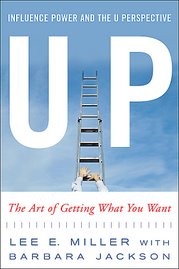
Susan Ascher, a provider of contract Human Resources services, describes an e-mail she wrote that nearly derailed a deal with a major client.
After a lot of back and forth by e-mail, the parties had worked out the major issues that they needed to resolve. In response to an e-mail summarizing what had been discussed, Ascher, president of the Ascher Group in Roseland, sent back an e-mail she thought was positive, but which ended with the statement: "As soon as our lawyers review it, I will get back to you." The client called her back almost immediately, very angry at "her dismissive attitude" toward the deal. He said he felt she was being rude when she was merely stating that it was standard procedure to have her lawyer review it before it was finalized.
This highlights the problem with communicating by e-mail. Misunderstandings frequently arise because e-mails lack the visual and auditory cues that give context to our communications when we speak.
The first thing you need to ask yourself before sending an e-mail is whether that is the best way to communicate your message. Sometimes, what you want to say is sufficiently important that it is worth the effort to have the conversation face-to-face. At other times, telephone is the best means of getting your message across.
Even when e-mail is the proper medium, you need to be careful how your e-mails are written. Careers have been damaged because of insufficient attention paid to the drafting of e-mails.
Pamela Harper, president of Glen Rock-based Business Advancement, and author of "Preventing Strategic Gridlock," described some examples of what she referred to as "e-mail self-sabotage," which occurs when people become sloppy about their e-mail sending habits.:
A director in a major corporation sent a rambling e-mail to one of his managers. Embedded in the middle of the communication was an urgent request for action. The recipient not only didn't read the e-mail in time to take the required action, he didn't even notice he was being asked to do something until it was later called to his attention.
An e-mail thread with the subject line "For your information" was sent back and forth without ever changing the subject line. On one of its rounds, the recipient never got around to reading the e-mail even though the e-mail contained an important question that didn't get answered in time for an upcoming meeting.
Here are some e-mail tips to prevent e-mail miscommunications from damaging your career:
E-mails are best used when they are intended to convey facts. Intent is frequently misinterpreted because there is no way to soften the impact of tough words or express nuanced intent through your tone of voice. Humor is frequently misconstrued. That is why emoticons and abbreviations like LOL (laugh out loud) to indicate that you are joking were invented. Use them, or better yet, save the humor for when you are speaking face to face.
Never reply to an e-mail when you are angry. When you are upset about a comment someone makes in an e-mail, wait before responding. Otherwise, you are likely to overreact. Once you write something in an e-mail, you can't take it back. People will read your comments over and over, getting more upset each time. When you write an e-mail, pay close attention to your choice of words and overall tone.
Highlight the points that are important. When you're reading e-mails, read them carefully. When you're writing e-mails, assume the recipients will not do so. Make good use of the caption. Put the most important points in the first paragraph. Limit the length of the e-mails to a few short paragraphs. Bold or underline key points. Do not bury important information in the middle of a lengthy paragraph. Where possible, include visual aids: emoticons, graphs, pictures etc. Don't rely exclusively on e-mails. If you can't resolve an issue with two e-mails, pick up the telephone and call.
E-mails and other virtual communication technologies allow us to extend our sphere of influence, reaching out to anyone when it is convenient for us to do so, no matter where the intended recipient is physically located. Ultimately, however, that technology is only as useful as the user understanding of its strengths and limitations.
A veteran human resources executive, Lee E. Miller is the author of "UP: Influence Power and the U Perspective -- The Art of Getting What You Want," and the co-founder of YourCareerDoctors.com, a Web site devoted to career success. Mail questions to Lee@YourCareerDoctors.com


No comments:
Post a Comment